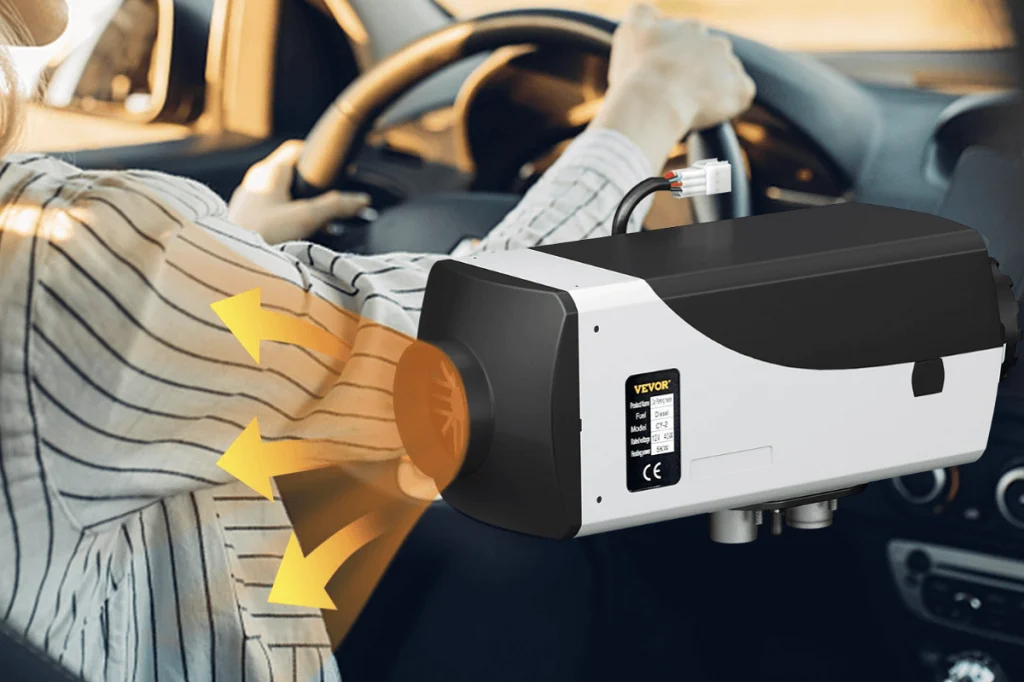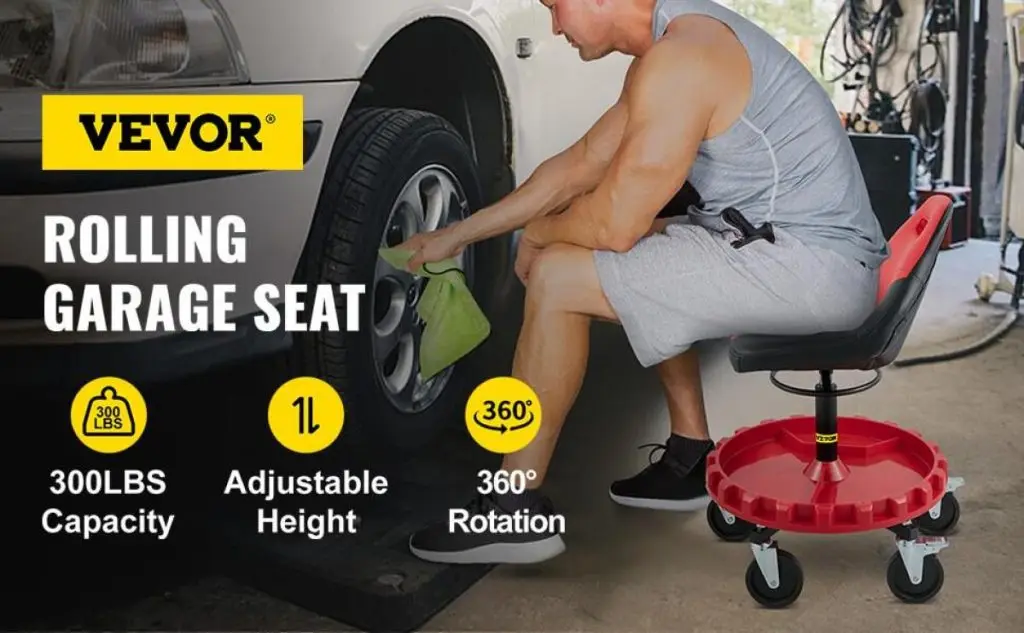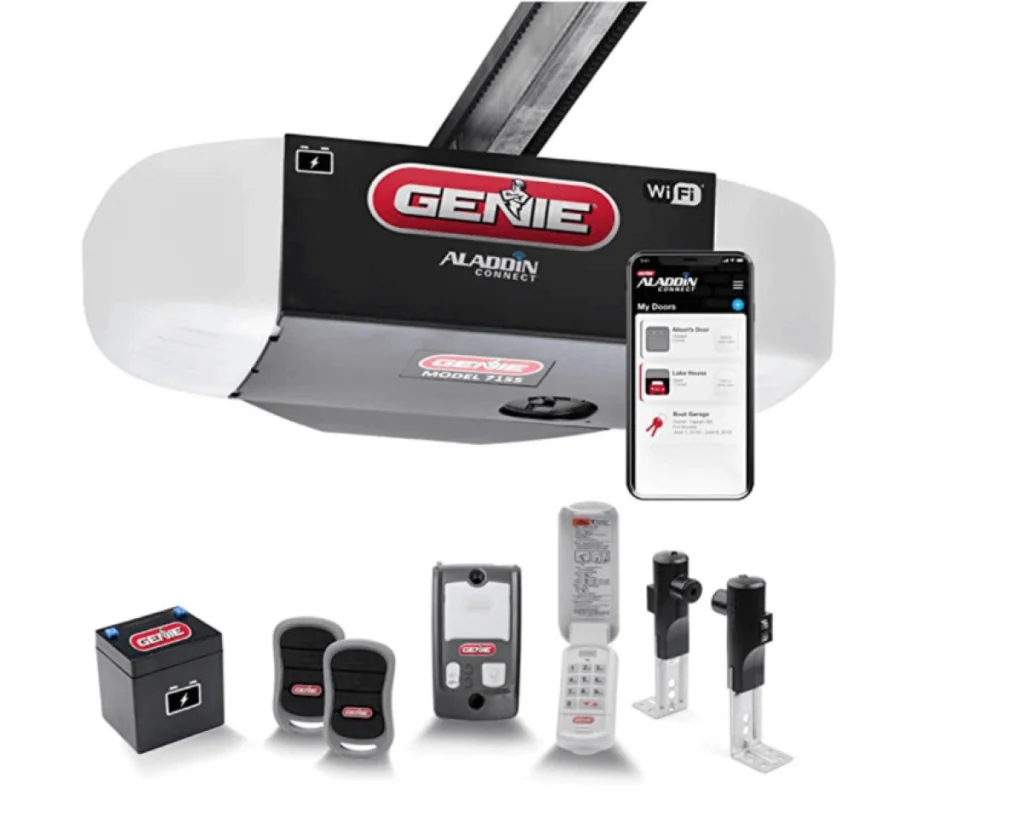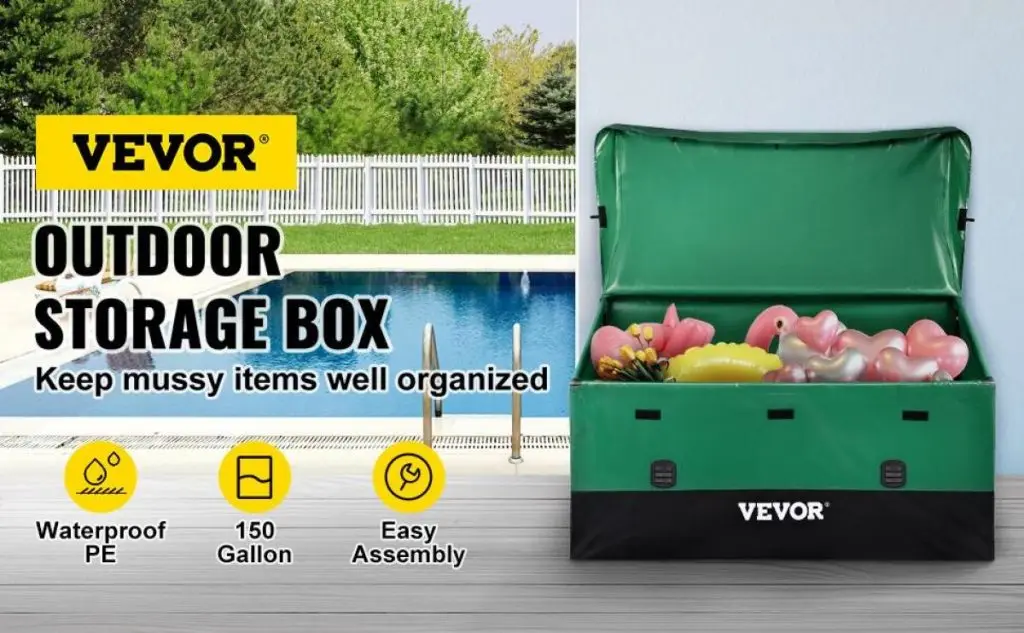A diesel heater is a popular, efficient, and cost-effective heating technology that is used for different applications, including campervans, boats, and workshops/garages. Choosing the correct diesel heater sizes is important for heating your car.
This is the ultimate guide to sizing a diesel heater – everything you need to know in order to pick the right unit.
Table of contents
- What Are Diesel Heater Sizes and Why Do They Matter?
- Key Factors to Consider Before Selecting a Diesel Heater
- What Diesel Heater Size Do I Need for My Caravan, Boat, or Garage?
- Step-by-Step Guide to Calculating the Correct Diesel Heater Size
- Diesel Heater Sizes Comparison: Which One Should You Choose?
- Diesel Heater Installation Tips for Different Sizes
- VEVOR Diesel Heaters: The Best Choice for Any Space
What Are Diesel Heater Sizes and Why Do They Matter?
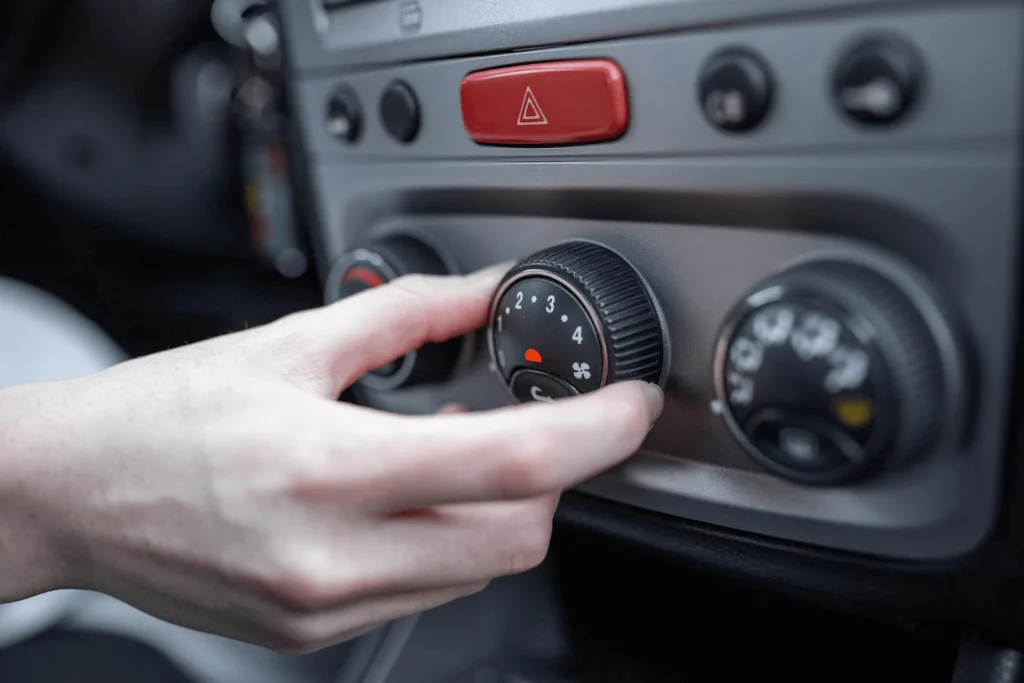
In order to choose the proper heater that delivers the most adequate heating experience while simultaneously being cost-effective, it is essential to understand the varied sizes and power ratings for these heaters.
The Role of Kilowatt (kW) Ratings in Diesel Heater Sizes
The physical size of the diesel heater plays a critical role, equally affecting installation requirements and heating capacity. Each size category has its own set of dimensional considerations that promote directly where and how the heater can be installed and heating efficiency.
Compact Units (2-4kW)
Compact diesel heaters are definitely designed for installations where space is limited. Measuring generally between 310-340 mm in length and 120-130 mm in width, they stand at about a height of approximately 115-125 mm. Compact units weighing about 2.5-3.5 kg are suitable where provision for installing them is feasible within vehicles, small boats, and other constrained spaces where room arrangement is a priority.
Standard Units (5kW)
Standard-sized diesel heaters create a compromise between power output and space use. Slightly larger in dimension than their smaller brethren, these heaters measure about 378 to 385 mm long, 140 to 147 mm wide, and 150 to 155 mm high. Weighing only 4.5 to 5 kg, these heaters are made to provide enough power for recreational vehicles, mid-size boats, and shop-floor environments while maintaining a reasonable installation footprint.
Large Units (8kW)
The large diesel heaters are designed for a large demand within large spaces. These have dimensions ranging from 420 to 430 mm in length and from 160 to 165 mm in width and height. These are effective and considerable heavy works, reaching between 5.5 kg to 6.5 kg, and are best for large commercial spaces and industrial applications where the utmost heating ability is very much needed.
Key Factors to Consider Before Selecting a Diesel Heater
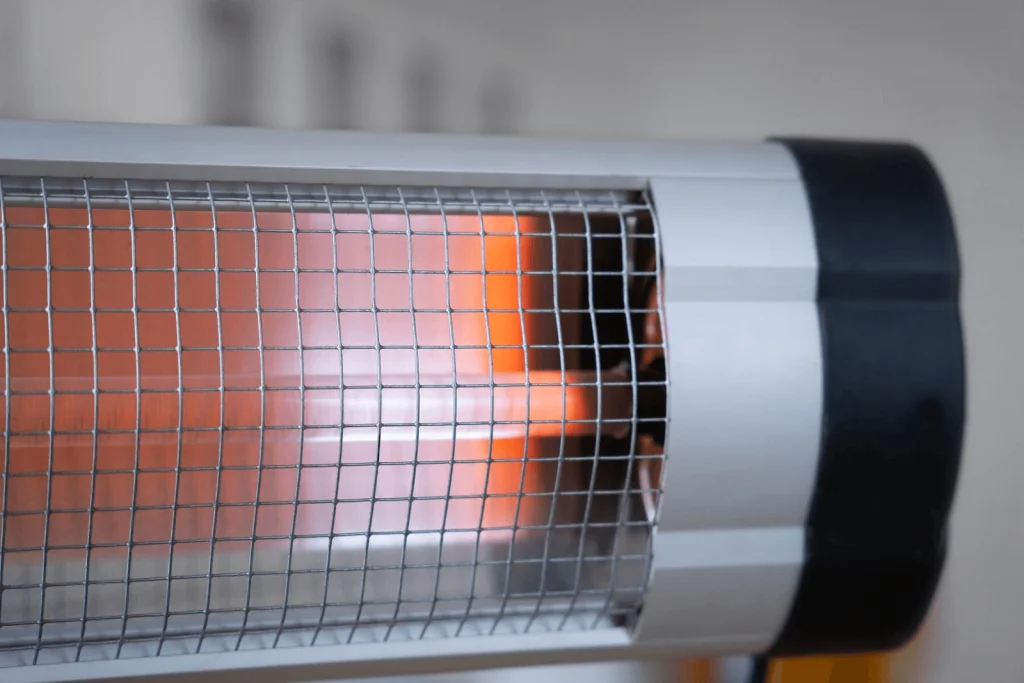
Selecting the appropriate diesel heater is an important choice that affects both comfort and operational expenses.
Size of the Space You Need to Heat
To calculate your space requirements:
- Measure your space’s length, breadth, and height in meters.
- Multiply these measurements to obtain the volume in cubic meters.
- For irregular spaces, break them into regular shapes and add the volumes together
Here’s what you need based on different space sizes:
- Up to 15m³: 2kW diesel heater suitable
- 15-30m³: 4kW diesel heater recommended
- 30-50m³: 5kW diesel heater needed
- Above 50m³: 8kW diesel heater or multiple units required
For high-ceiling spaces over 2.4 meters, add 20% to your calculated volume to ensure adequate heating capacity. Similarly, for spaces with multiple connecting rooms or open floor plans, add 15% to account for heat distribution requirements.
Insulation and Climate Conditions
The effectiveness of your diesel heater heavily depends on both your space’s insulation quality and local climate conditions. These factors can significantly impact the size of heater needed.
Insulation Levels and Their Impact:
1. Well-Insulated Spaces
- Modern double-glazed windows
- Full wall cavity insulation
- Roof insulation exceeding 200mm
- Weather-sealed doors
- Can use standard calculated heater size
2. Moderately Insulated Spaces
- Single-glazed windows
- Partial wall insulation
- Basic roof insulation
- Increase heater size by 20%
3. Poorly Insulated Spaces
- Gaps around windows/doors
- Minimal or no insulation
- Increase heater size by 35-40%
Climate Considerations:
1. Mild Climates (Temperature differential up to 15°C)
- Standard calculated heater size sufficient
- Focus on maintenance heating
2. Moderate Climates (Temperature differential 15-25°C)
- Increase heater size by 20%
- Consider supplementary heating for extreme days
3. Severe Climates (Temperature differential over 25°C)
- Increase heater size by 35-40%
- Plan for extreme weather events
Usage Frequency and Type of Application
Usage Patterns:
1. Continuous Use (8+ hours daily)
- Select a heater from the upper range of the calculated size
- Choose models with larger fuel tanks
- Consider units with advanced control systems
- Plan for regular maintenance intervals
2. Regular Use (4-8 hours daily)
- Standard calculated size suitable
- Focus on efficiency in medium settings
- Basic control systems adequate
3. Occasional Use (Less than 4 hours daily)
- A lower range of calculated size is acceptable
- Priority on quick heating capability
- Simple control systems sufficient
Application Types:
1. Caravan/RV Installation
- Consider available installation space
- Account for battery power consumption
- Prioritize quiet operation
- Look for compact units with multiple air outlets
- Ensure compatibility with vehicle’s electrical system
2. Garage/Workshop Installation
- Focus on quick space heating capability
- Consider dust and debris protection
- Look for robust construction
- Plan for permanent installation
- Account for ventilation requirements
3. Home Installation
- Prioritize quiet operation
- Consider aesthetic integration
- Focus on safety features
- Look for programmable controls
- Ensure proper carbon monoxide monitoring
What Diesel Heater Size Do I Need for My Caravan, Boat, or Garage?
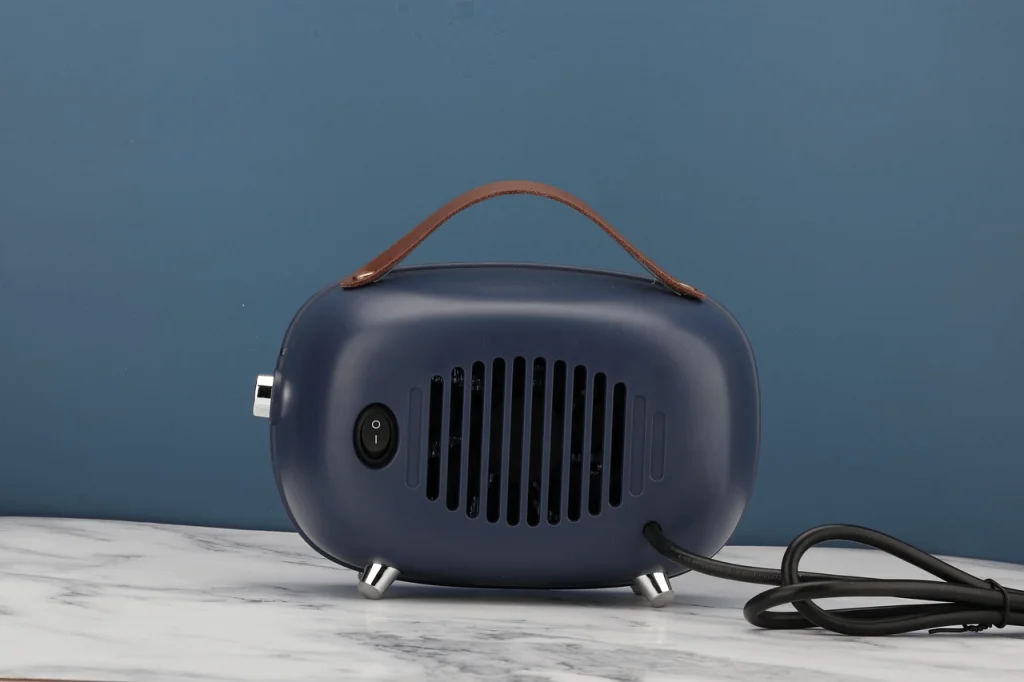
Each diesel heater size category serves different purposes and spaces effectively. Understanding these distinctions will help you make an informed decision for your heating needs.
2kW Diesel Heaters: Best for Small Spaces
The 2kW diesel heater represents an ideal solution for compact spaces where efficient heating is essential. These units provide sufficient heat while maintaining minimal power consumption and space requirements.
Recommended For Your Project
Ideal Applications for 2kW Heaters:
1. Small Caravans
- Campervans under 5.5 meters in length
- Pop-top caravans
- Small teardrop trailers
- Conversion vans
- Maximum space volume: 15 cubic meters
2. Compact Boats
- Small cabin cruisers
- Sailing boats under 26 feet
- Weekend vessels
- Canal boats
- Maximum cabin volume: 12 cubic meters
3. Small Rooms and Spaces
- Tool sheds
- Home offices
- Small workshops
- Garden rooms
- Maximum room size: 20 square meters
Performance Specifications:
- Heating capacity: Up to 2,000 watts
- Fuel consumption: 0.1-0.24 L/hour
- Typical warm-up time: 10-15 minutes
- Air flow rate: 140 m³/hour
- Suitable for spaces with good insulation
5kW Diesel Heaters: Ideal for Medium-Sized Spaces
The 5kW diesel heater offers versatile heating solutions for medium-sized spaces, providing substantial heat output while maintaining reasonable fuel efficiency.
Recommended For Your Project
Perfect Applications for 5kW Heaters:
1. Larger Vehicles
- Motorhomes 6-8 meters in length
- Family caravans
- Horseboxes
- Small mobile homes
- Maximum vehicle volume: 30 cubic meters
2. Medium Boats
- Cruisers 26-35 feet
- Live-aboard vessels
- Sailing yachts
- Trawlers
- Maximum cabin volume: 25 cubic meters
3. Medium Spaces
- Single-car garages
- Small workshops
- Studio spaces
- Home gyms
- Maximum space size: 50 square meters
Performance Characteristics:
- Heating capacity: Up to 5,000 watts
- Fuel consumption: 0.15-0.42 L/hour
- Typical warm-up time: 8-12 minutes
- Air flow rate: 200 m³/hour
- Effective in moderately insulated spaces
8kW Diesel Heaters: Perfect for Large Spaces
The 8kW diesel heater delivers powerful heating performance for substantial spaces where significant heat output is required.
Recommended For Your Project
Optimal Applications for 8kW Heaters:
1. Large Commercial Spaces
- Double garages
- Professional workshops
- Small warehouses
- Industrial units
- Maximum space size: 100+ square meters
2. Large Marine Vessels
- Boats over 35 feet
- Commercial vessels
- Large yachts
- Ship workshops
- Maximum cabin volume: 50+ cubic meters
3. Industrial Applications
- Maintenance facilities
- Storage buildings
- Construction sites
- Agricultural buildings
- Manufacturing areas
Performance Metrics:
- Heating capacity: Up to 8,000 watts
- Fuel consumption: 0.2-0.65 L/hour
- Typical warm-up time: 5-8 minutes
- Air flow rate: 280 m³/hour
- Suitable for poorly insulated spaces
Step-by-Step Guide to Calculating the Correct Diesel Heater Size
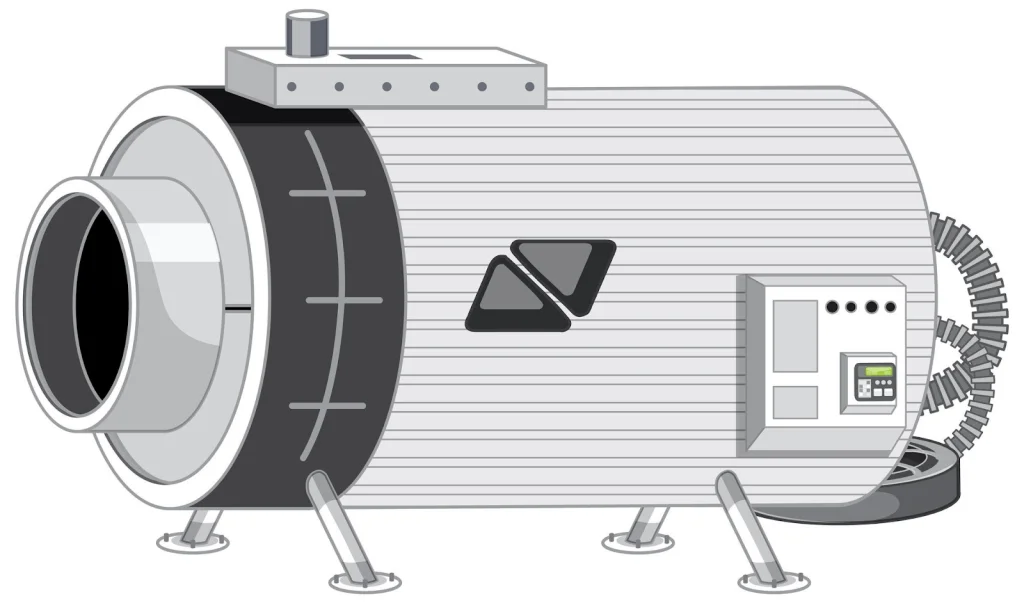
Follow these steps carefully to calculate your desired diesel heater sizes:
Calculating the Size Based on Room Volume
The first step in selecting the correct diesel heater size is calculating the volume of your space. This fundamental measurement forms the basis of your heating requirements.
Basic Volume Calculation Method:
1. Measure Your Space
- Length (L): Measure from wall to wall
- Width (W): Measure from side to side
- Height (H): Measure from floor to ceiling
- Basic Formula: Volume = Length × Width × Height
Adjustment Factors for Different Space Types:
1. Regular Shaped Rooms
- Multiply L × W × H directly
- Example: 4m × 3m × 2.4m = 28.8 cubic meters
- Round up to the nearest whole number
- Basic heating requirement: 1kW per 10 cubic meters
2. Irregular Shaped Rooms
- Divide into regular sections
- Calculate each section separately
- Add sections together
- Include all connected spaces
- Example:
- Main area: 4m × 3m × 2.4m = 28.8m³
- Alcove: 1m × 2m × 2.4m = 4.8m³
- Total volume: 33.6m³
3. High Ceiling Adjustments
- For ceilings over 2.4m:
- Calculate standard volume first
- Add 20% for every meter above 2.4m
- Example: 3m ceiling requires +12% capacity
Using Insulation and Weather Factors
After calculating the basic volume requirement, you must adjust for insulation quality and local climate conditions to ensure adequate heating capacity.
Insulation Quality Adjustments:
1. Well-Insulated Spaces
- Modern double-glazing
- Full cavity wall insulation
- Ceiling insulation >200mm
- Weather-sealed doors
- Adjustment: Use the standard calculated size
- Example: 30m³ space = 4kW heater
2. Moderately Insulated Spaces
- Single-glazed windows
- Partial wall insulation
- Basic roof insulation
- Standard door seals
- Adjustment: Add 20% to the calculated size
- Example: 30m³ space = 5kW heater (4kW + 20%)
3. Poorly Insulated Spaces
- Gaps in walls/windows
- Minimal insulation
- Poor sealing
- Draft problems
- Adjustment: Add 35-40% to calculated size
- Example: 30m³ space = 5-8kW heater (4kW + 35-40%)
Diesel Heater Sizes Comparison: Which One Should You Choose?

Source: Freepik
Knowing the differences between heater sizes can help you make the right choice:
2kW vs. 5kW Diesel Heaters
First, it is important to understand the differences for people who want to use heat in small to medium-sized areas.
| Application | 2kW Diesel Heaters | 5kW Diesel Heaters |
| Heating Capacity | Heat spaces up to 215 sq ft Output temperature range: 40-75°C (104-167°F) | Heat spaces up to 538 sq ft Output temperature range: 40-85°C (104-185°F) |
| Fuel Efficiency | Fuel consumption: 0.1-0.24 L/hour Average monthly fuel cost: $30-45 Ideal for weekend travelers | Fuel consumption: 0.15-0.4 L/hour Average monthly fuel cost: $45-75 Economic for regular use |
| Common Use Cases | Small campervans Pop-up campers Cargo van conversions Work vans | Medium-sized RVs Small boats Tiny homes Workshop spaces |
5kW vs. 8kW Diesel Heaters
Moving up the size scale, the comparison between 5kW and 8kW heaters addresses the needs of larger spaces and more demanding applications.
| Application | 2kW Diesel Heaters | 5kW Diesel Heaters |
| Performance in Larger Spaces | Effective in spaces up to 50m² (538 sq ft) Heating time: 15-20 minutes for full space | Heats spaces up to 80m² (861 sq ft) Heating time: 10-15 minutes for full space |
| Fuel Consumption | Standard operation: 0.15-0.4 L/hour Startup consumption: 0.5 L/hour12V power draw: 8-10 amps | Standard operation: 0.25-0.65 L/hour Startup consumption: 0.8 L/hour12V power draw: 10-12 amps |
| Heating Efficiency | Temperature rise: 20°C in 15-20 minutes Air flow rate: 140-180 m³/hour Better for intermittent use | Temperature rise: 20°C in 10-15 minutes Air flow rate: 200-250 m³/hour Ideal for continuous operation |
Pros and Cons of Different Diesel Heater Sizes
Making the decision on which heater size to use needs an understanding of all the pros and cons.
2kW Heaters
Pros:
- Lowest fuel consumption
- Most economical option
- Compact size
- Quieter operation
- Perfect for small spaces
- Lower power draw
Cons:
- Limited heating capacity
- Slower to heat larger spaces
- Not suitable for extreme cold
- May struggle with high altitudes
- Limited upgrade potential
5kW Heaters
Pros:
- Versatile size for most applications
- Good balance of power and efficiency
- Suitable for moderate climates
- Reasonable fuel consumption
- Wide availability of parts
- Good resale value
Cons:
- Higher initial cost than 2kW
- More power draw than 2kW
- May be overkill for small spaces
- Requires more installation space
- Louder than 2kW models
8kW Heaters
Pros:
- Maximum heating capacity
- Fastest heating time
- Excellent for extreme conditions
- Can heat multiple areas
- Better for high altitudes
- More powerful fan
Cons:
- Highest fuel consumption
- Most expensive option
- Highest power draw
- Requires larger installation space
- Noisiest operation
- May be excessive for most uses
Diesel Heater Installation Tips for Different Sizes
Follow the below tips to understand how to install a diesel heaters for different sizes.
Installation Requirements for 2kW Heaters
Here’s how you can install 2kW Heaters:
Space Requirements
- Minimum clearance: 8 inches from walls/obstacles
- Mounting area: 12″ x 8″ footprint
- Height requirement: 10″ including exhaust clearance
- Fuel tank placement: Within 6 feet of heater unit
Ventilation Specifications
- Exhaust pipe diameter: 24mm
- Minimum exhaust length: 2 feet
- Maximum exhaust length: 8 feet
- Air intake diameter: 25mm
- Fresh air intake requirement: Minimum 20 square inches
Electrical Setup
- Power consumption: 10-40W
- Current draw: 1-3 amps
- Minimum wire gauge: 16 AWG
- Recommended battery capacity: 50Ah
Installation Considerations for 5kW and 8kW Heaters
For larger heaters like 5kW and 8kW you may need the following:
Space Requirements
- Minimum clearance: 12 inches from walls/obstacles
- Mounting area: 14″ x 10″ footprint
- Height requirement: 12″ including exhaust clearance
- Fuel tank placement: Within 8 feet of heater unit
Ventilation Specifications
- Exhaust pipe diameter: 24mm
- Minimum exhaust length: 2.5 feet
- Maximum exhaust length: 10 feet
- Air intake diameter: 25mm
- Fresh air intake requirement: Minimum 30 square inches
Electrical Setup
- Power consumption: 10-85W
- Current draw: 1-7 amps
- Minimum wire gauge: 14 AWG
- Recommended battery capacity: 100Ah
VEVOR Diesel Heaters: The Best Choice for Any Space
When it comes to efficient and reliable heating solutions, VEVOR’s range of diesel heaters stands out as a versatile choice for various applications. Whether you’re heating a workshop, garage, van conversion, or off-grid setup, VEVOR offers multiple power options to match your specific needs.
VEVOR’s diesel heater lineup includes:
- 2kW units perfect for smaller spaces and van conversions
- 5kW models ideal for medium-sized workshops and garages
- 8kW heaters designed for larger commercial spaces
Some benefits include:
- Efficient Temperature Control: Advanced thermostat system with automatic start/stop functionality
- Multiple Speed Settings: Up to 10-speed fan control for precise comfort adjustment
- Bluetooth Connectivity: Select models offer smartphone control and monitoring
- Fuel Efficient: Minimal diesel consumption for maximum heating output
- Versatile Installation: Suitable for various applications, from vehicles to workshops
Customer Reviews of VEVOR Diesel Heaters
The quality and reliability of VEVOR diesel heaters are consistently praised by verified purchasers:
- “Great heaters… perfect for our off-grid setup. The only thing I would change is adding a direct 120v AC outlet option.” – James S., November 2024
- “Overall, I am very happy with this unit. It’s quiet, and doesn’t burn much fuel. Each unit heats about 550 sq feet really well. On a 35°F degree morning, it will heat up to 75°F inside.” – Bradley, October 2024
- “This 5kW was a breeze to install in my van conversion and fired right up after priming the pump. The Bluetooth app works wonderfully… On low it uses around 2 amps at 12v so it’s pretty efficient.” – Andrew S., October 2024
Conclusion: Make the Right Choice for Your Comfort and Budget
VEVOR diesel heaters combine reliability, efficiency, and value in a range of products suitable for diverse heating needs. Whether you’re outfitting a workshop, converting a van, or seeking an efficient heating solution for any space, VEVOR’s lineup offers the right choice at a competitive price point.
Take the next step toward optimal heating efficiency by selecting the VEVOR diesel heater that matches your space and requirements.

